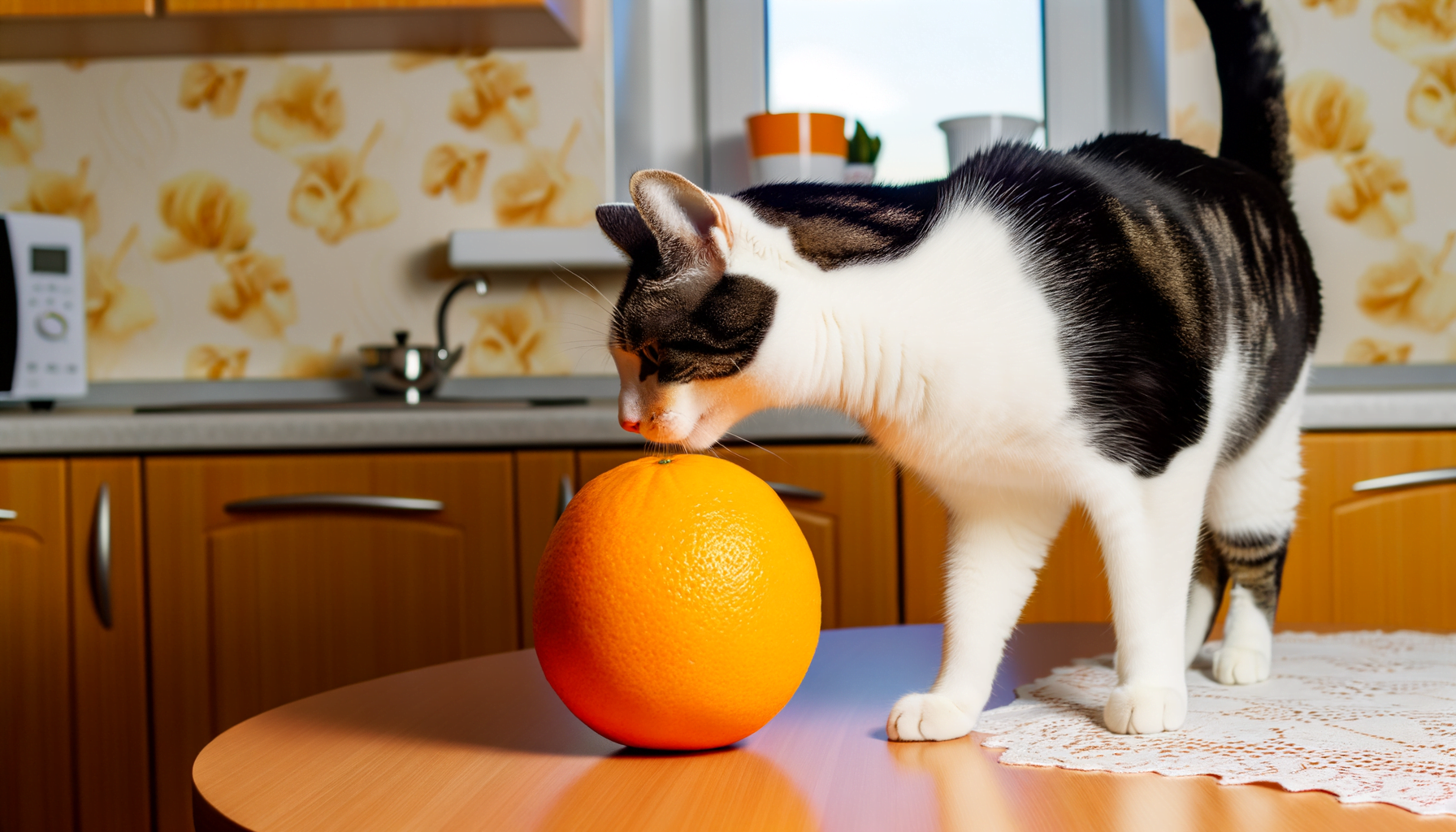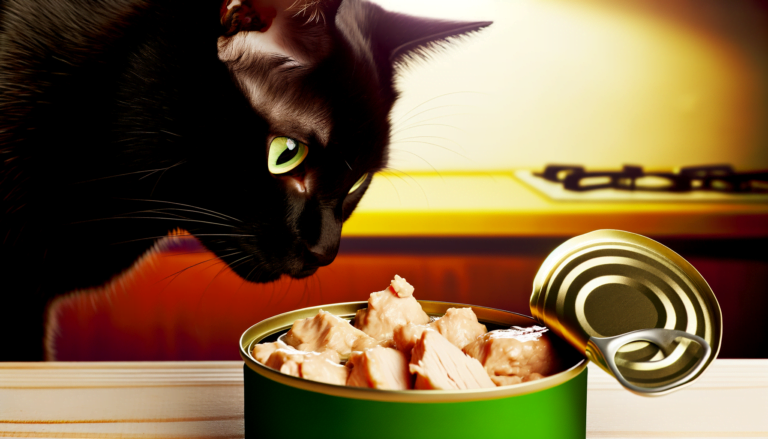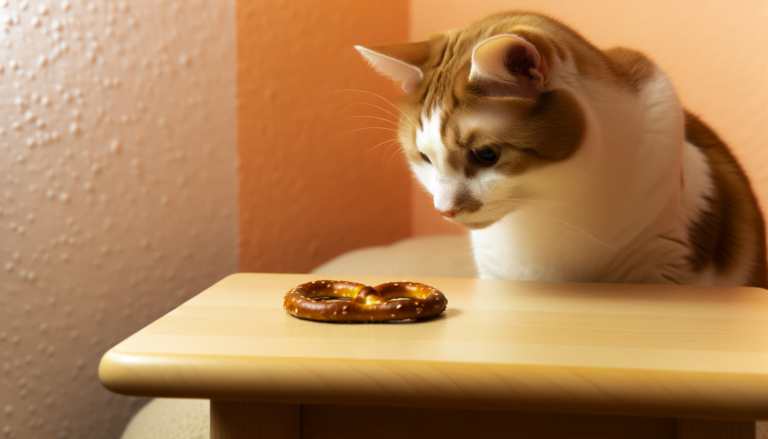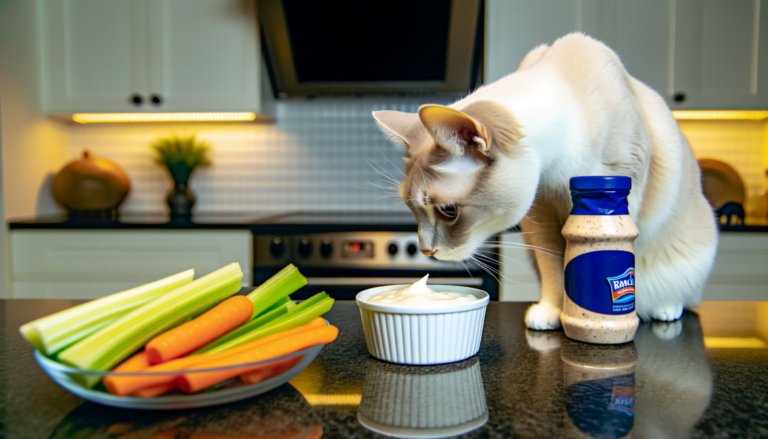Unraveling the Citrus Mystery: Can Cats Safely Consume Oranges?
No, cats should not eat oranges. Oranges, along with other citrus fruits, contain a substance called psoralens which is toxic to cats. Psoralens can cause upset stomach, diarrhea, and even more serious conditions like depression and photosensitivity if ingested by your feline friends. Additionally, the oils in the rinds can be irritating to cats’ skin and the essential oils can be harmful if ingested or applied to the skin. Therefore, it’s best to provide meals and treats that are specifically formulated for feline dietary needs.
Can Cats Eat Oranges: Unraveling the Truth
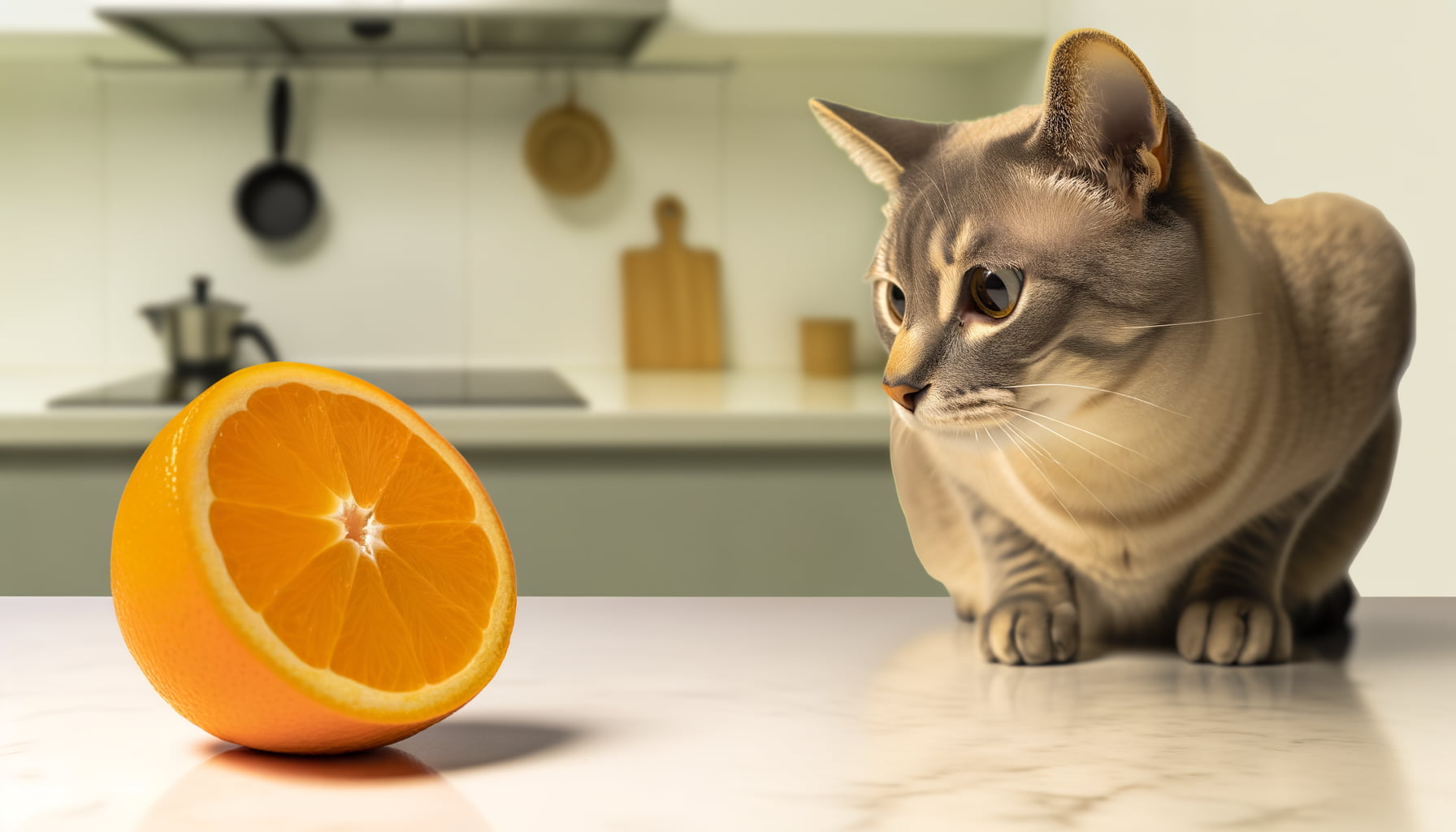
When delving into the question, “Can cats eat oranges?”, it’s essential to explore the intricacies of a feline’s biological necessities. Cats’ systems are finely balanced, honed through evolution to thrive on high-protein carnivorous diets. This makes them inherently different from omnivores like humans. Therefore, it’s crucial to scrutinize whether oranges, a type of food naturally outside of their usual diet, are safe for cats to consume.
Oranges contain vitamin C, fiber, and water, but their high acid content and essential oil components like limonene and linalool can pose potential health risks to cats. These elements found in the peel, seeds, and pith of the orange can be toxic to cats. Consuming them can result in gastrointestinal upset, leading to symptoms like vomiting, diarrhea, and discomfort.
However, small portions of the orange’s flesh, devoid of any seeds and peel, are generally not harmful. Despite this, oranges are not nutritionally necessary for cats. Their systems can create all the vitamin C they require and their carnivorous diet caters to their fiber needs. On balance, the potential side effects of feeding cats oranges outweigh their negligible nutritional benefit. Hence, it’s advisable for pet owners to refrain from making oranges a part of their cat’s diet.
The Effects of Citrus Fruits on Cats
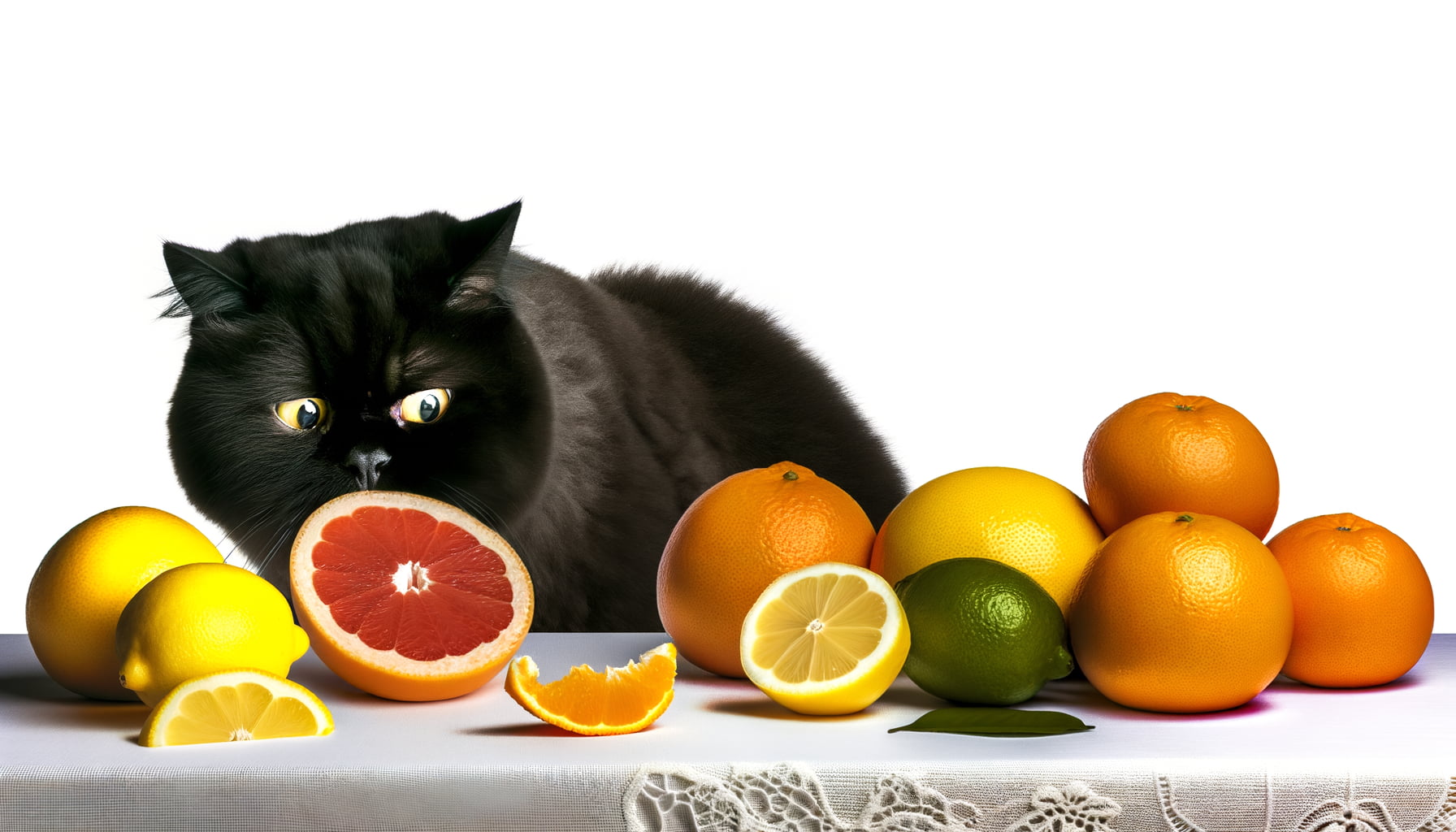
The impact of citrus fruits on felines can be intricate, given their unique physiology. Cats lack the natural enzymes required to break down certain citrus ingredients such as limonene and linalool, which are often found in essential oils derived from citrus fruits.
Consequently, when ingested, these compounds can lead to gastrointestinal upset in cats, manifesting symptoms like vomiting, diarrhea, and in severe cases, even depression. Furthermore, not only ingestion but the exposure to citrus essential oils on their skin or inhalation can lead to hypersensitivity reactions.
In light of these findings, it becomes evident that citrus fruits, despite their nutritional content for humans, are not suitable for our feline friends. Cats, due to their distinctive and species-specific dietary needs, may not respond favorably to the citrus inclusion in their diet. Therefore, owners need to be conscious of the potential risks while introducing any new food into their pet’s diet.
Understanding Cats’ Dietary Requirements
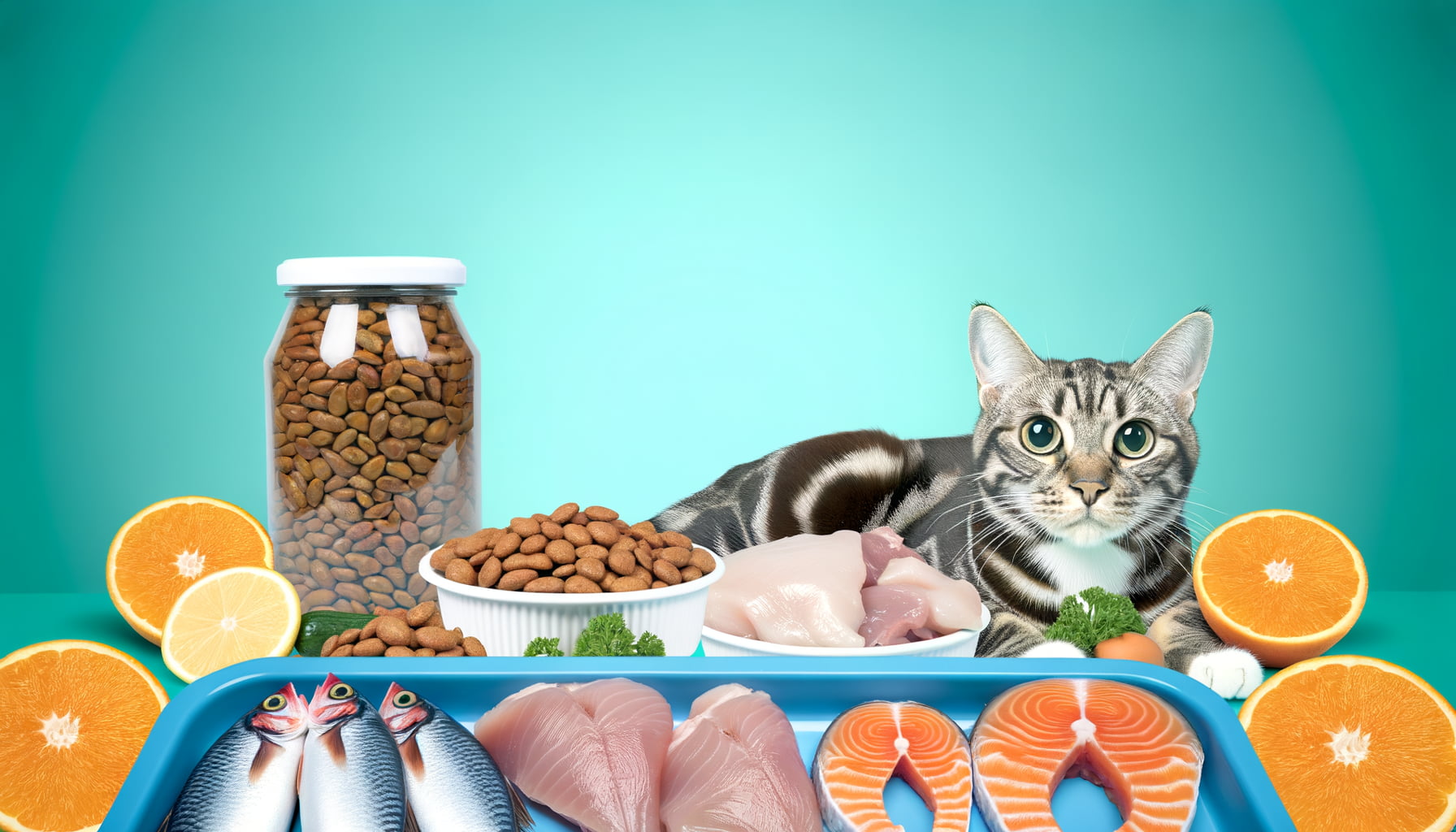
Cats, as obligate carnivores, have unique dietary requirements. Their bodies are finely tuned for a meat-based diet, relying primarily on nutrients found in animal tissues. Unlike omnivores like humans, cats cannot synthesize some essential nutrients and must obtain them directly from their diet. Nutrients such as taurine, arachidonic acid, vitamin A, and vitamin B12 are exclusively found in animal tissues and are vital for feline health.
Special attention should be given to the protein content in a cat’s diet. Proteins are the building blocks for body tissues and are necessary for growth, maintenance, reproduction, and repair. Cats require a higher protein diet compared to dogs or humans. Furthermore, carbohydrates, although not a dietary necessity for cats, provide a source of quick energy and should constitute only a small portion of their dietary intake.
Finally, cats require a suitable balance of omega-6 and omega-3 fatty acids for optimal health. These are vital for maintaining the integrity of cellular membranes, promoting skin and coat health, and playing important roles in reproduction and vision. Most commercial cat foods are tailored to these needs, but it’s equally essential for pet owners to be aware of these requirements when contemplating dietary supplements or alterations.
Precautions When Feeding Cats with Fruits
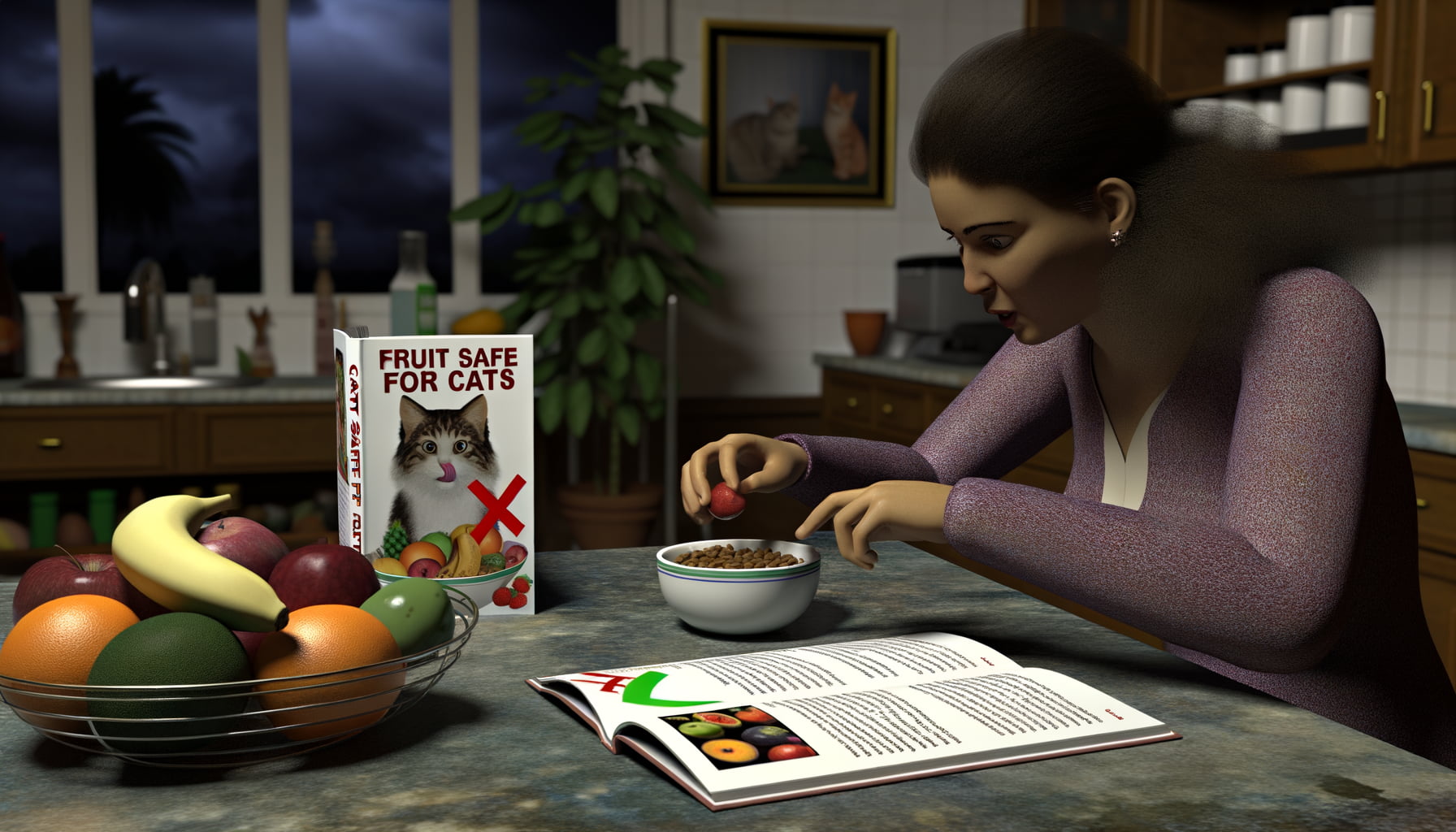
Fruits, inclusive of oranges, are generally an unconventional food choice for our feline friends. Though it is crucial to introduce fresh foods into their diet, it’s equally important to acknowledge the potential hazards as well. The first precaution to keep in mind is that not all fruits are safe for cats. There are certain fruits such as grapes and avocados that are toxic for cats and should always be kept out of their reach.
Secondly, even if a fruit is recognised as cat-safe, it’s critical to ensure it’s properly washed and seedless prior to feeding it to your cat. This is because the seeds in many fruits can pose choking hazards or contain chemicals that are harmful to cats. Therefore, it’s always recommended to fully cut and clean the fruit.
Another important practice is to initially introduce new fruits into your cat’s diet in small quantities. Starting with small portions allows you to monitor any abnormalities or signs of distress. If any adverse reaction is noticed such as vomiting, diarrhea, or other unusual behaviors, it would be in the cat’s best interest to consult a veterinarian immediately. Investing effort in these precautionary steps can significantly diminish the risk of complications when integrating fruits like oranges into your cat’s diet.
Conclusion
After delving into the question of whether cats can safely consume oranges, it seems that the mystery remains unsolved. While some sources suggest that oranges may be safe for cats in moderation, others caution against it due to potential risks such as gastrointestinal upset. Ultimately, it is best to consult with a veterinarian before introducing any new foods into your feline friend’s diet.
As with any dietary decisions for your pet, it is essential to prioritize their health and well-being above all else. While oranges may seem like a harmless treat, it is crucial to consider the individual needs and sensitivities of your cat before offering them this citrus fruit. By approaching this topic with caution and seeking professional advice, you can ensure the safety and happiness of your beloved pet.
